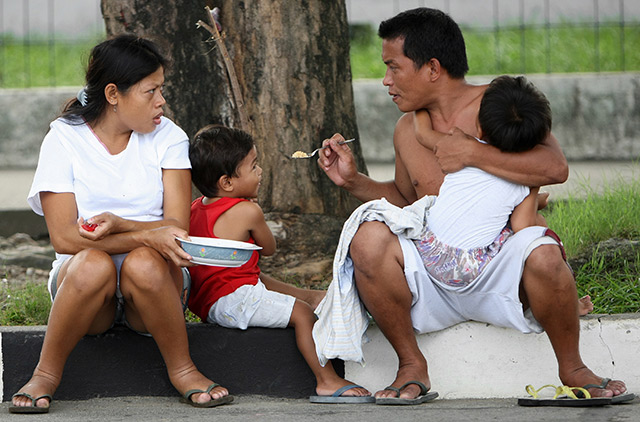
MANILA, Philippines – Senator Paolo Benigno "Bam" Aquino IV filed a bill aiming to prevent food from going to waste in the Philippines.
Senate Bill No. 357, or the Zero Food Waste Act, seeks to "ultimately end the cycle of having food end up in the trash instead of stomachs."
Aquino's measure requires food establishments to donate their excess food to charities involved in the distribution of meals such as food banks.
This move, he said, may not just lessen food waste but also improve the state of food security of the poorest Filipino families.
"Sa taas ng presyo ng bilihin at presyo ng pagkain ngayon, hindi makatarungan na maraming nasasayang na pagkain," Aquino added.
(With the high prices of food and other commodities nowadays, it's unjust that so much food go to waste.)
A family of 5 would have to set aside P439 ($9.78) a day to be able to eat adequately, based on the guidelines set by Pinggang Pinoy of the Food and Nutrition Research Institute (FNRI). (READ: Is the minimum wage enough for a day's worth of nutritious meals?)
A Social Weather Stations (SWS) survey for the first quarter of 2016 also found that an estimated 6.9 million families or 31% considered themselves "food-poor" or barely have enough food to eat.
Food banks
The proposed law highlights the use of food banks and the creation of a community-based food distribution system for families who are food insecure.
Food security, according to the Food and Agriculture Organization (FAO), happens "when all people, at all times, have physical and economic access to sufficient, safe, and nutritious food that meets their dietary needs and food preferences for an active and healthy life."
The 2015 Global Food Security Index (GFSI) ranks the Philippines 72nd out of 109 countries when it comes to food security. The index also rated the country's efforts against food insecurity as "moderate performance."
The proposed law, according to Aquino, will reduce food insecurity.
It will create a so-called National Anti-Food Waste Scheme, with the Department of Social Welfare and Development (DSWD) acting as a coordinating agency between businesses and food banks. The DSWD will set guidelines regarding the collection, storage, and distribution of edible food donated by businesses to food banks.
Aside from ensuring the food's good condition, food-related businesses, such as food manufacturers, supermarkets, and restaurants, will shoulder the costs of sending the food to food banks' warehouses or point of distribution.
Penalty for wasting food
Establishments which "deliberately make food waste unfit for consumption" will be penalized, Aquino said.
Hindering redirection of the excess food to food banks and inedible ones to waste management centers is also prohibited under the proposed law.
The senator added that the Zero Food Waste Act will "push private individuals and their local governments to participate in a segregation campaign to have food waste readily available for recycling into fertilizer or compost." – Rappler.com
$1 = P46